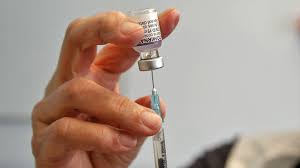If you've tried to buy a bike, or replace parts on one you have, you may have had a difficult time. COVID restrictions has stopped production and interrupted shipping and distribution all over the world. In the meantime, demand for bikes and parts has increased, as people were reluctant to take mass transportation (or, in some places, it was shut down altogether) and people found that cycling is one way to get to where you're going, get exercise along the way, and adhere to social distancing protocols.
All of that meant a boom in business for bike shops--as long as they had stock. When supplies dried up, some kept their doors open by doing repairs, as people grew frustrated at not finding the bike or accessory they wanted. But when supplies of new parts disappeared, those shops cannibalized other bikes for parts---until those ran out.
Thus did a sad irony unfold: The very "boom" that led, for some shops, to their best profits in years or decades also led to their demise. Not even well-established and well-respected shops were immune, as we saw when Harris Cyclery shuttered in June.
Now, this pandemic could claim another casualty: Programs that give bikes to kids from needy families. One such program is in Mississippi. The Community Benefit Committee of the Lowndes County Sheriff's office has been giving out bikes for the past ten years. Some of those bikes come through donations, but the majority are purchased, wholesale, from Huffy. The money comes from events like the Haunted House as well.
This year's House brought in more than enough money to purchase the bicycles. But Huffy says it doesn't have bikes to sell them. Neither, of course, does the local Wal Mart.
CBC founder and director Rhonda Sanders still holds out hope that there will be some bicycles available. But, just in case there aren't, she is making alternate plans to bring toys to younger kids or technology-related items for older ones.
Learning about Sanders' and the CBC's situation, I have to wonder how many similar programs are in jeopardy--not only this year. After all, once factories that make bikes, parts and accessories are operating at full capacity, and shipping and distribution channels are flowing freely, warehouses and shops won't be fully restocked overnight.

